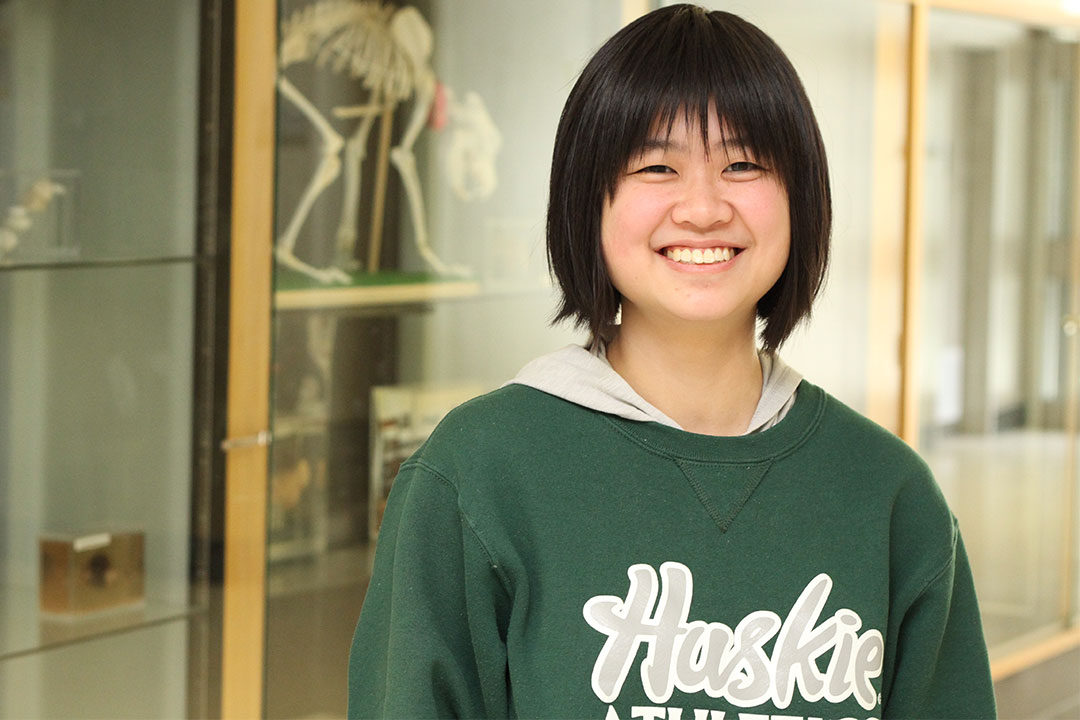
International students explore U of S with Mitacs
For many Prairie dwellers, Saskatoon’s winters are a great excuse to escape to balmier climates. But for Mengying Liu, snowdrifts and cool temperatures were actually an attractive reason to come to the University of Saskatchewan.
By HenryTye GlazebrookAfter earning her undergraduate degree at Beijing China Agricultural University, Liu decided she wanted to explore a frostier environment for the next phase of her academic career.
“It’s kind of ridiculous, but I’d heard people saying it can turn to minus 30 or even 40 in the winter (in Saskatoon) and I really wished I could see those piles of snow,” Liu said, laughing.
But weather was only one of many factors, and one that initially had Liu considering programs in the United States, Russia and other countries with wintry climates. But when she learned of the Mitacs Globalink Research Internship program, Liu simply couldn’t pass up the opportunity to give Saskatchewan a long look.
The program, which started in 2009, sponsors international students in the final year of their undergraduate study to visit Canadian universities and work with researchers in their area of study for three months. There have been 69 students, including Liu, who have come to the U of S with support from Mitacs, getting to know students, faculty and staff while undertaking summer research projects. Another 10 are expected to come to campus this summer.
“It’s a very valuable experience, because that summer (of 2015) I was not only working in the laboratory,” she said. “The Mitacs program is not only recruiting students from China, they are getting people from India, Mexico, and we all live in College Quarter. We had a lot of socializing, work and fun together. The university is a great place to be.”
Liu spent that summer at the U of S working with Susantha Gomis, professor and head of the Western College of Veterinary Medicine’s veterinary pathology department, on a project identifying bacterial species responsible for chicken embryo mortality in Western Canada.
Gomis spoke very highly of Liu, who has remained on campus at WCVM to pursue a graduate degree in veterinary pathology, with the help of the Mitacs Globalink Graduate Fellowship program. He said that the Globalink program is indispensable for researchers like himself.
“It helps in terms of bringing academically good students from other countries,” Gomis said. “It is essential to have excellent students in order to produce novel, meaningful data in research programs.
“I need to spend lot of time finding good students with known contacts with good reference,” Gomis said. “Mitacs brings good students to your doorstep, so you can judge whether student is capable of doing research within a short period of time.”
The goal, according to Mitacs business development specialist Zsuzsa Papp, is to place a spotlight on Canada as a leader in research and academia.
“Mitacs Globalink seeks to put Canada on the academic map as a compelling, first-rate research and education destination,” she said. “By bringing some of the brightest international minds to Canada, we’re putting our research at the forefront. These students are here to work alongside Canadian students to share knowledge, exchange ideas and offer an international perspective.”
And for students like Liu, the program has made her aware of opportunities in her own life that she had no idea were available.
“I never knew there was such a cool place here, and people here are really friendly, but I didn’t know all that until after I came here for this program,” she said. “I fell in love with this university when I came here.”
The call for 2018 Globalink Research Internship faculty submissions is now open. For more information, visit the Mitacs website.

